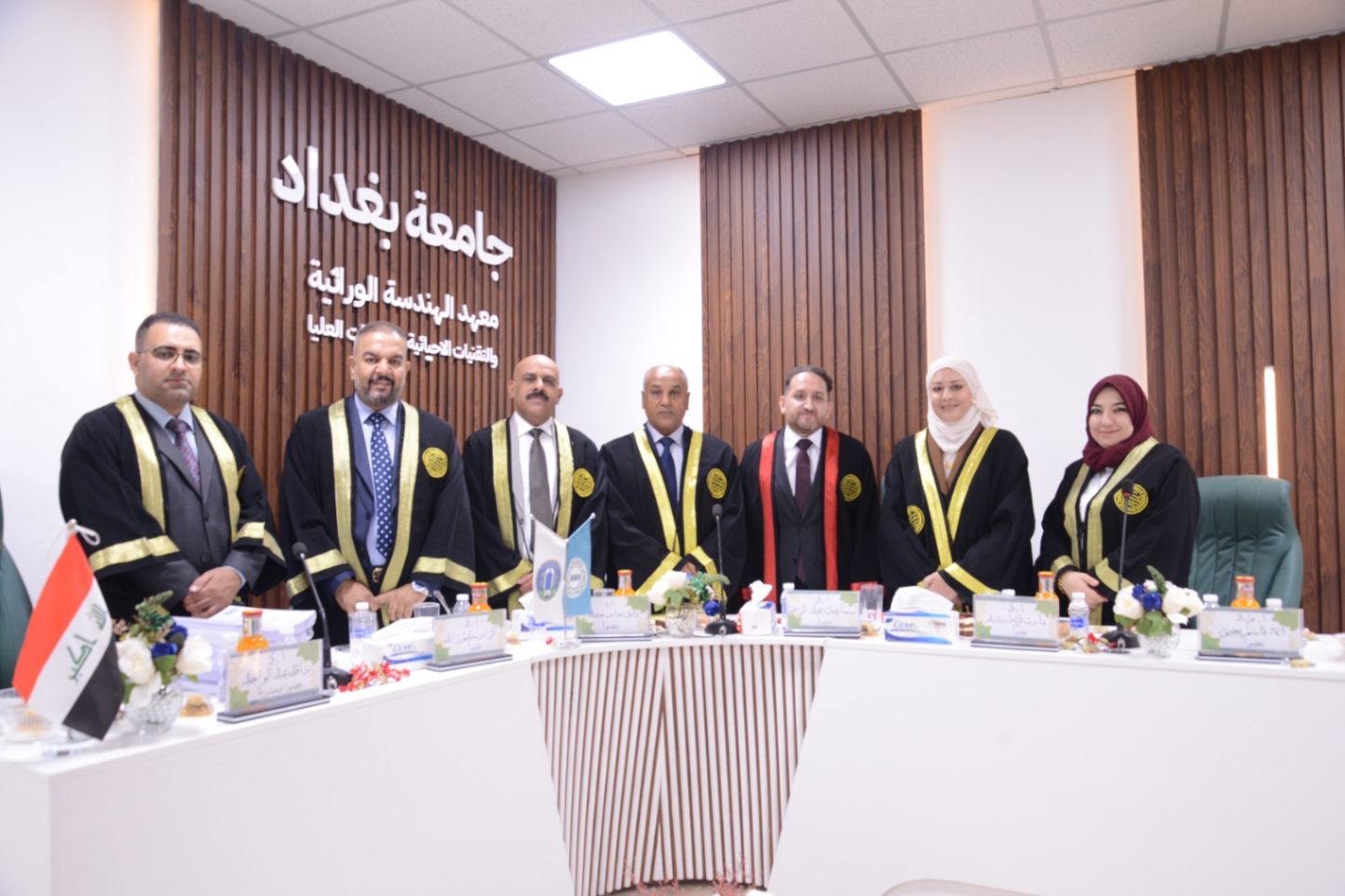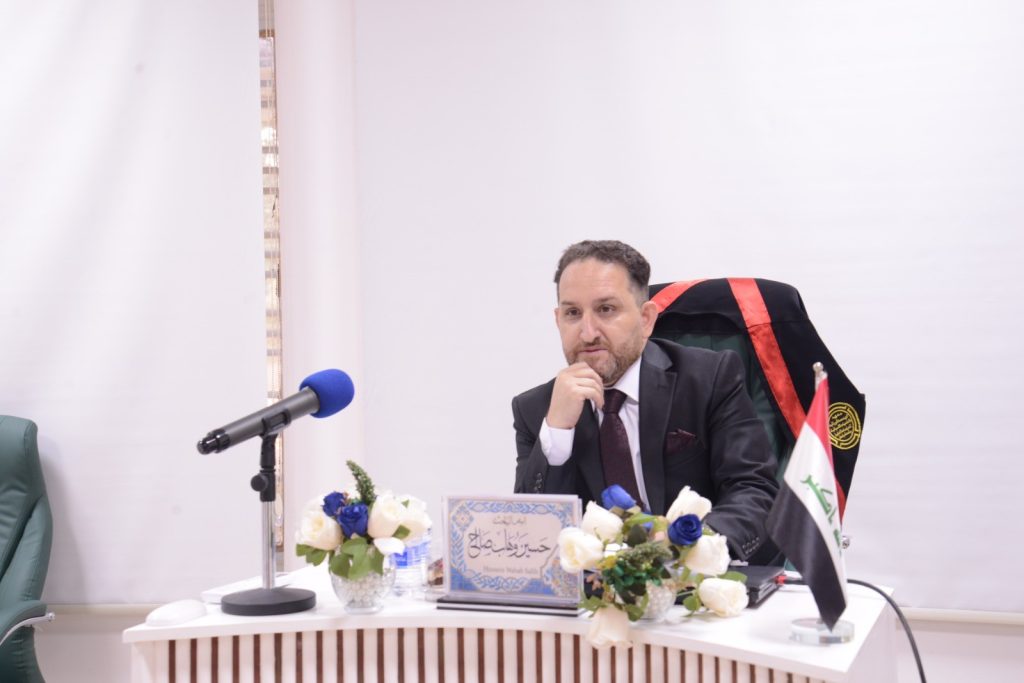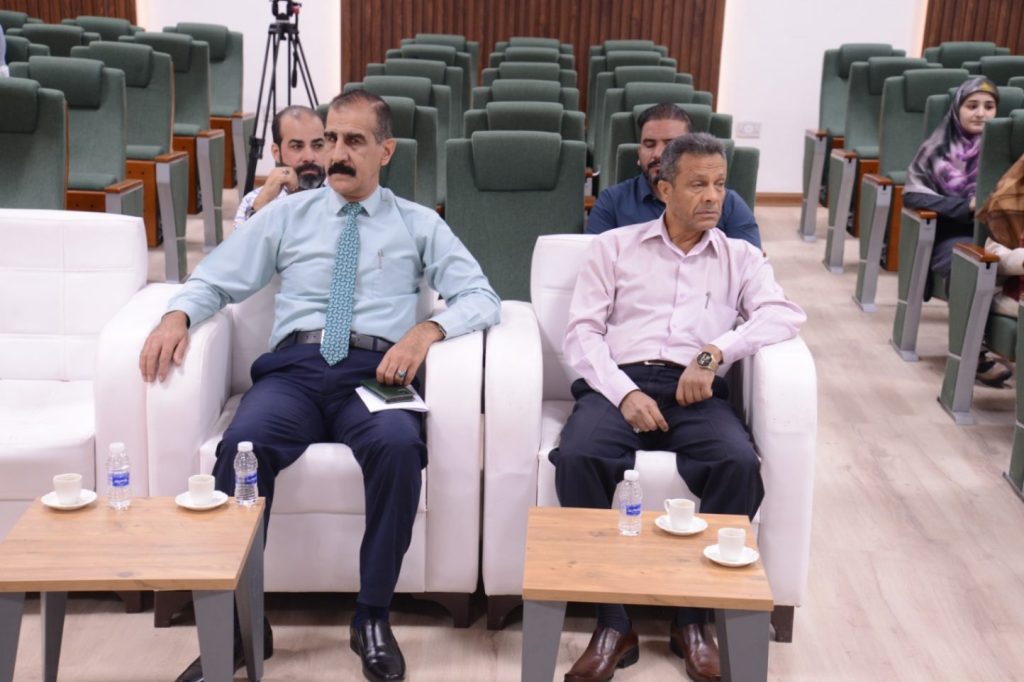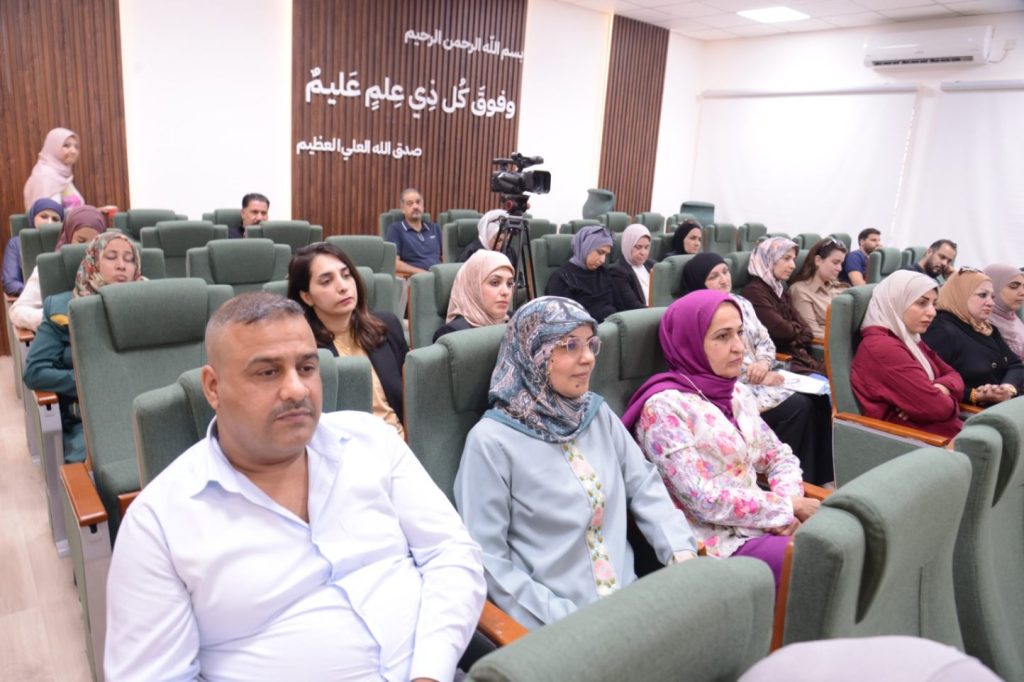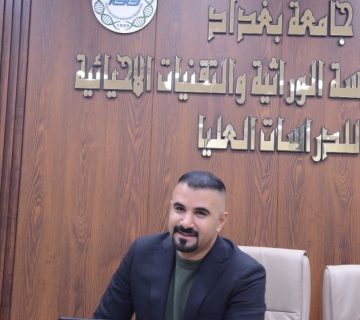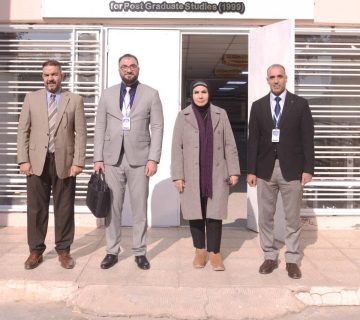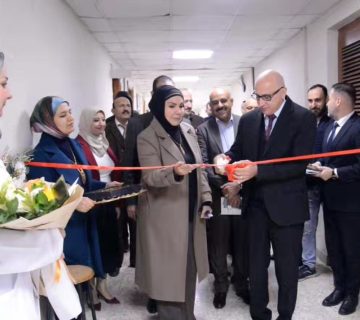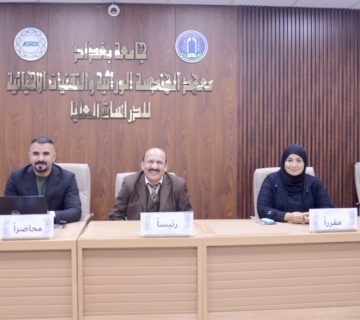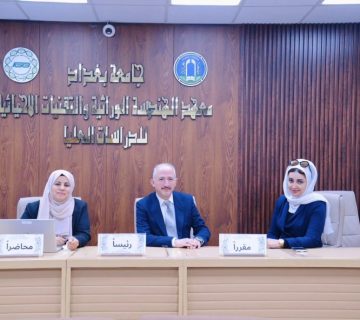The Institute of Genetic Engineering and Biotechnology for Postgraduate Studies / University of Baghdad discussed the Ph.D. dissertation of student Hussein Wahab Saleh, titled:
“The Role of Gene Expression of miR-124 and miR-143 as Potential Biomarkers in Predicting Tumor Response and Metastasis in Colorectal Cancer Patients After Stereotactic Body Radiotherapy (SBRT)”, supervised by Prof. Dr. Rafid Abdulwahid Al-Moussawi.
The study aimed to measure gene expression levels using RT-qPCR, employing U6 as an internal control gene, and the 2^-ΔΔCt method to calculate relative expression changes.
Preliminary results showed a significant downregulation of miR-124 and miR-143 in patients compared with healthy controls (P < 0.002), supporting their tumor-suppressive role in advanced stages of the disease.
Following SBRT treatment, a gradual increase in expression levels was observed, particularly in patients who achieved complete response (CR), reaching a peak after two weeks, whereas responses were weaker or delayed in other groups (PR, SD, PD).
The study concluded that miR-124 and miR-143 could serve as non-invasive biomarkers, applicable through liquid biopsy, to evaluate radiotherapy effectiveness and predict early response or molecular relapse in metastatic colorectal cancer patients.
It also recommended that combining microRNA analysis with functional imaging techniques such as CT and MRI may contribute to developing personalized and adaptive radiotherapy strategies for individual patients.

